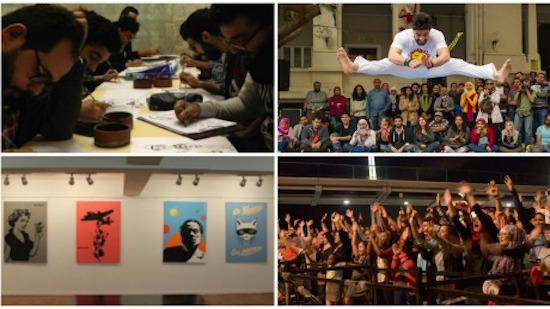In 2016, Egypt saw many changes that impacted culture, an aspect of life not only a fundamental and essential as any other but also as vulnerable to economic and legal developments, especially when they occur rapidly one after the other.
Such was the case in the last two years in Egypt, with accumulative changes that started two years ago peaking in the second half of 2016.
In 2014, a new restrictive law was announced, subjecting NGOs to scrunity and leaving them open to possible prosecution. Al Mawred Al Thakafy, one Egypt’s major cultural players relocated to Beirut shortly after the announcement of the new law, suspending most of its activities in Egypt, and handing the rest over to the newly established El-Genaina Company. A number of other cultural players chose to change their legal status to companies.
But the debate around NGOs’ operations is far from over. After parliament voted for additional legal restrictions in the form of Article 89 last November, Ahram Online reported that “the new law stipulates that foreign NGOs seeking to operate in Egypt must secure prior approval from the National Foreign NGOs Regulation (NFNRA).
The law, which was reviewed in legal and constitutional terms by the State Council, also stipulates that the president will be exclusively empowered with naming the secretary-general of the National Foreign NGOs Regulation Apparatus (NFNRA) would regulate the operations of foreign NGOs in Egypt and monitoring all their sources of foreign funding.”
Not only do such growing restrictions have a direct impact on the financial resources, the independence and as such the work of those NGOs, but according to cultural players who have kept their NGO status, these laws are also often accompanied by procedural obstacles and delays.
An example given by Abdalla Daif, the programmes director from Gudran Association for Art and Development, an Alexandrian NGO that operates through several cultural spaces scattered across the city, shows how obtaining funds from an international grant giver can be easier than having the grant approved by the Egyptian authorities.
“We have received a grant from the Ford Foundation back in 2014. Until this moment, we await permission from the Social Solidarity Ministry to collect it,” Daif describes the numerous visits he had paid to the ministry, following up on the process and meeting all requirements.
In the face of new laws, the NGO status is a burden, but Daif feels that making Gudran a company would mean “a complete alteration of our mission.”



